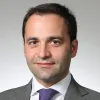Kalin Anev Janse's Speech at the World Economic Forum in Davos
Speeches
ESM
Davos, Switzerland
The European Markets Outlook
Kalin Anev Janse
Davos, 19 January 2017
PLEASE CHECK AGAINST DELIVERY
- At this lunch, we will ask ourselves: what to watch in European markets in 2017?
- One thing that we learned last year is that the biggest uncertainties are the outcome of elections.
- Market expectations were wrong on the outcome of the U.K. referendum and U.S. elections.
- What does this say for coming year?
- It is exactly 60 years ago that the treaty of Rome was signed, which laid down the foundations of the EU.
- There are national elections in 3 of the 6 founding members of the European Union: France, Germany and the Netherlands.
- And since 1960, these countries have outperformed the US and UK in real GDP per capita growth.
- They also did much better in income inequality.
- In the US, the poorest 40% of earners bring home just 16% of the national income, while the richest 10% earn 29%.
- In the Netherlands, France and Germany, the numbers are much smoother (the bottom 40% earns 22%, the top 10% around 23%).
- So Europe is fairer in distributing income.
- If we look at the EU economy as a whole, we do better as well.
- In 2016, the EU economy and that of the euro zone will grow faster than the US.
- The European Commission Autumn forecasts predict 1.8% growth for the EU, 1.7% for the euro area, and 1.6% for the US.
- Some of the fastest growing economies in the developed world are in Europe.
- Ireland grew 4.1% last year, and Spain 3.2%.
- Both went through ESM financial assistance programmes, and that’s no coincidence. Because economic theory predicts that structural reforms lead to faster growth.
- In conclusion: not only is economic performance of the EU at least as powerful as that of the US. The European economy is also much more inclusive.
- This is reflected in the fact that people are less concerned about the economy.
- The EU should not be shy about this economic success.
- So what will drive these elections?
- The polls show that people’s top concern in Europe is immigration and security.
- This is understandable. Because Europe is close to conflict situations close to its borders. And because of the terrible terrorist attacks in Europe’s capitals.
- But countries alone cannot solve these issues.
- The EU is the ideal platform to work together on security and immigration. And this what the EU needs to address.
- Because this is what citizens are concerned about. This what we need to address.
- If you’d believe the headlines in the newspapers, European markets are weak.
- But that’s far from the truth. And investors don’t believe it.
- The ESM will issue €57 billion in bonds this year.
- We are one of the biggest players in the euro issuance market.
- Last week, we issued a long 5-year bond with a coupon near zero percent.
- Last year, we issued in negative yields up to 9 years.
- That means rates have gone up.
- But they are still very low, and this is a big help for programme countries.
- Because if the ESM pays low rates, so do our programme countries.
- We pass our funding costs on to programme directly.
- Investors buy our bonds in large numbers, which keeps the price down.
- So indirectly, our investors bring about large budget savings for programme countries.
- They do this because they are convinced of a strong future for Europe.
- Let me sum up.
- Europe is facing challenges this year, as it always does.
- Concerns about immigration and security will drive elections in three countries in the EU.
- The EU is the best model to solve these issues.
- People understand that because they know that the EU has a solid economic track record.
- The EU outperforms the US in many respects, such as income distribution.
- The EU should not be shy about this success.
- The successful issuance programme by the ESM shows that investors believe it.
Author

Chief Financial Officer and Management Board Member
Contacts


Deputy Head of Communications and Deputy Chief Spokesperson
+352 260 962 551
